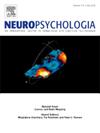睡眠是否会改变老年人记忆中的情绪偏见?
IF 2
3区 心理学
Q3 BEHAVIORAL SCIENCES
引用次数: 0
摘要
睡眠有助于巩固情绪记忆。年轻人在睡眠中倾向于巩固负面记忆,而老年人则倾向于巩固积极记忆,这与已知的情绪记忆编码的偏见相似。然而,目前尚不清楚睡眠后发现的偏差是否从编码偏差中延续下来,或者睡眠是否放大或改变了情绪记忆偏差,因为之前的研究没有包括睡眠/觉醒间隔前的记忆测量。本研究评估了睡眠前后的情绪记忆,以确定睡眠是否会影响情绪记忆的选择性。健康青年(N=49)和老年人(N=50)同时完成积极和消极情绪记忆任务。观看情绪图像,然后在过夜前进行即时识别评估(睡眠组;YA=27, OA=29)或一天前清醒(Wake组;OA丫= 22日= 21)。大约12小时后评估延迟识别。结果显示在编码时没有情绪偏差。在12小时的延迟之后,条件(积极与消极)和组(睡眠与清醒)的影响之间存在显著的相互作用,这样睡眠(相对于清醒)对年轻人和老年人的消极记忆有益,而不是积极记忆。这些发现表明,睡眠可能选择性地增强消极情绪记忆的巩固,这与之前在年轻人中的发现一致,但与之前在老年人中报道的积极记忆巩固的预期转变相矛盾。尽管睡眠和记忆的变化与年龄有关,但睡眠依赖的负面情绪记忆可能在一些老年人样本中保留下来。本文章由计算机程序翻译,如有差异,请以英文原文为准。
Does sleep change the emotional bias in memory in older adults?
Sleep supports the consolidation of emotional memories. Young adults exhibit a bias towards consolidation of negative memories during sleep while older adults exhibit a bias towards consolidation of positive memories, which parallels known biases in emotional memory encoding. Yet it is unclear whether biases found after sleep are carried over from biases in encoding or if sleep amplifies or changes the emotional memory biases as prior studies did not include a measure of memory before the sleep/wake interval. The present study assessed emotional memory before and after intervals of sleep and wake to determine whether sleep biases the selectivity of emotional memory. Healthy young (N = 49) and older adults (N = 50) completed both a positive and negative emotional memory task. Emotional images were viewed, followed by an immediate recognition assessment before overnight sleep (Sleep group; YA = 27, OA = 29) or before a day awake (Wake group; YA = 22, OA = 21). Delayed recognition was assessed approximately 12-hrs later. Results indicate no emotional bias at encoding. After the 12-hr delay there was a significant interaction between the effects of condition (positive vs. negative) and group (Sleep vs. Wake) such that sleep (relative to wake) benefitted negative but not positive memories in both young and older adults. These findings suggest that sleep may selectively enhance negative emotional memory consolidation, consistent with prior findings in young adults but contradicting the expected shift toward positive memory consolidation previously reported in older adults. Despite age-related changes in sleep and memory, sleep-dependent negative emotional memory may be preserved in some older adult samples.
求助全文
通过发布文献求助,成功后即可免费获取论文全文。
去求助
来源期刊

Neuropsychologia
医学-行为科学
CiteScore
5.10
自引率
3.80%
发文量
228
审稿时长
4 months
期刊介绍:
Neuropsychologia is an international interdisciplinary journal devoted to experimental and theoretical contributions that advance understanding of human cognition and behavior from a neuroscience perspective. The journal will consider for publication studies that link brain function with cognitive processes, including attention and awareness, action and motor control, executive functions and cognitive control, memory, language, and emotion and social cognition.
 求助内容:
求助内容: 应助结果提醒方式:
应助结果提醒方式:


